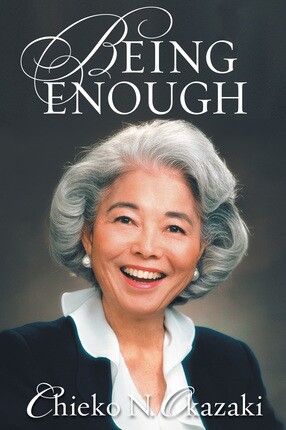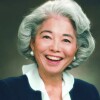Sometimes, when I’m speaking to a congregation, I ask how many of them were born to parents who were members of the Church and how many made the decision to convert. (Some of them aren’t sure what to answer until I explain that it’s not a trick question and that I’m not going to say, “Aha! What’s wrong with the rest of you? We should all be converts!”)
It gives us, as a group, a common body of information upon which to talk about choices. Obviously, they made choices that day to be present instead of being somewhere else; and for many members that decision involved making some fairly complicated arrangements about other pieces of their lives that needed to be taken care of. It’s a choice that I appreciate very much, as you can imagine. The second point I like to make is that we come from many different backgrounds and different directions to form the group that we are in. Our diversity is one of our greatest strengths and one of the sources of our unity as Latter-day Saints.
Choice
Our right to choose is eternal. We sometimes say that it is God-given, but even that is not completely accurate. It is God-protected, but the right to choose is part of our eternal being. God cannot and will not take that right away from us, or he would cease to be God. It is Satan who sought to take away our agency in the premortal existence, and it is still Satan who tries to take away our agency here. If you are getting messages from any quadrant that say, “We will make the decisions for you” or “Just do what we say,” I hope little warning bells go off to say, “Why am I getting this message?” and “What will the results be if I let someone else make this decision for me?”
I also hope that we will be equally careful about giving those messages. I realize that there’s an enormous temptation when we’re dealing with our children to say, “I know better than you. Do it my way or else!” But if we do it with our children, then I think it’s easy to find ourselves also doing it with members who are less experienced in the Church or less experienced in their callings. As Elder M. Russell Ballard has made so clear in his general conference talks and books, the proper order of a council is to be sure every member has a voice and that his or her concerns are listened to and understood; then when the decision is made, even if it is different from the decision we might prefer, we can sustain it.
The Lord has made this beautiful and appealing promise: “For it shall come to pass in that day, that every man shall hear the fulness of the gospel in his own tongue, and in his own language, through those who are ordained unto this power, by the administration of the Comforter, shed forth upon them for the revelation of Jesus Christ” (Doctrine and Covenants 90:11).
What does it mean to hear the fulness of the gospel in your own language? I thought of this scripture when I was in England and trying to remember that I needed to look for taxis and buses coming on the left side of the road and remembering that flats are apartments, not shoes, and that lifts are elevators and not things you put in shoes. I admired the missionaries who had learned to understand and speak this language so that they could communicate the fulness of the gospel in it. I loved the language of England because of what it told me about the people of England. I tried to soak up just as much culture as I could not only because I wanted to learn about it but also because showing respect for a person’s national or ethnic background is a way of showing respect for that person. It’s a way of saying: “Where you come from and how you do things and how you say things is important to me because you are important to me.”
One church leader who used this verse as a sermon text made me think more deeply when he said, “I do not think I am treating this text irresponsibly to suggest that we might well include the language of children, of youth, of the poor, of the affluent, of the educated and uneducated, and of any other group whose language is their gateway to hearing and understanding. Although the in-house vocabulary of [the Church] may fall easily from our lips, we will do well to remember that such language may serve as a barrier rather than a gateway.”1
▶ You may also like: Elder Christofferson on why we need to be better at embracing diversity
Diversity
The second point that I want to make is the strength that comes from diversity. I really enjoyed reading letters of children to God. Here’s one about racial diversity from a ten-year-old named Andy:
“God, I know a kid at school. His name is Tom Chen. He is Chinese. Most of us are not. Boy you like to have variety. Love, Andy.”
And here’s a comment from eight-year-old Amanda about ethnic diversity:
“Dear God, I live in Maine. I have a lot of friends here. People here are great. Some people say we talk funny. That makes me mad. They should talk. They are from Boston. Love, Amanda. P.S. My mother’s friends live in Boston.”
And here’s an eight-year-old, Linda, who has a question about religious diversity:
“Dear God, Are Hebrew schools better than regular schools? I know that you must be Jewish, but try to be honest.”2
I know quite a bit about racial and ethnic diversity. I grew up in Hawaii, and I joined the Church as a convert at age fifteen, so I’ve been a member for more than sixty years—a whole lifetime’s worth. Over the years I have encountered many people who convey, sometimes unconsciously but sometimes on purpose, that converts are not quite as good as lifelong members—that they aren’t as committed, that they don’t understand the gospel as well, that they don’t take the gospel as seriously, and that they still have something to prove before they can be fully accepted. Perhaps it’s not necessary to say that I’m very sorry for people who have this perspective. I think it’s true that the lifelong members of the Church may sometimes have an immense advantage in having been born and reared inside the culture of the particular ethnic group of Latter-day Saints. They know how to pray using Church language. They know almost instinctively how to find their way around a meetinghouse. They easily use terms like CTR and PPI. There is great strength in the security of knowing a system from the inside out.
But there is also an inherent weakness in being an insider. It means that you may not be a good interpreter when it’s necessary to interface with a group outside the Church. We literally don’t know the language of another group. We don’t know what their customs are. We may be willing to pray with them, but we are surprised if they stand up to pray or if they use different prayer language than we do. These differences are not hard to bridge; but someone who has no experience in making these necessary cultural translations may feel uneasy and even affronted by these differences, rather than accepting them as natural and normal. And, meanwhile, people in the other group may be feeling uneasy and uncomfortable with Latter-day Saint language and customs. What a blessing, in these situations, to have another convert who has roots in that other religious tradition or is connected to the outside group in some way and can easily provide interpretation.
And certainly we should seek to build these bridges, to be flexible and understanding. The great blessing that comes to us through the growth of the Church makes it clear that all members everywhere need to be prepared to communicate respectfully and clearly to many different kinds of religious and community groups.
Can you understand why I see diversity as a great strength, enabling us to learn from each other? Carolyn Rasmus, the former executive assistant to the Young Women general board, and a convert herself, points out: “[We are] a diverse church made up of people with unique and different backgrounds. We represent a diversity in age, experiences, talents, family and personal situations, languages spoken and understood, education, marital status, and church callings. But more important than our diversity are the things that bind us together and unite us. For all of our diversity, we are united by our bond of faith in the Lord Jesus Christ and in our commitment to The Church of Jesus Christ of Latter-day Saints. We are people of faith. It is the thing that sets us apart from the world. It is what makes us brothers and sisters in the fullest sense of the word. Faith is the unifying factor that created a common bond between me and … sisters around the world, with our next-door neighbors or with the person seated beside or behind or in front of you. We are sisters and brothers of a common faith. It is our faith, I believe, that not only brings us together but which will in the end be the only thing that really matters.”3
▶ You may also like: Chieko Okazaki reflects on Pearl Harbor and how her life was changed as a Japanese-American
Being Enough
”This mortal probation is an invitation to walk with faith in the Savior,” writes Sister Chielo Okazaki, “and His promise is that he will make up all of our deficiencies. If we will give Christ our trust, then he will give us everything we lack."
Filled with Sister Okazaki's personable teaching style, her memorable stories, and her sharp insights into human nature and the gospel. Being Enough will quickly become a favorite of readers everywhere.
Notes
- Geoffrey Spencer, “Put Out into the Deep!” Saints Herald, June 1992, 8.
- David Heller, Dear God (New York: Berkeley Publishing Group, 1987), 29, 32, 52.
- Carolyn J. Rasmus, “The Faithful Heritage of a Convert,” in A Heritage of Faith: Talks Selected from the BYU Women’s Conferences, edited by Mary E. Stovall and Carol Cornwall Madsen (Salt Lake City: Deseret Book Co., 1988), 40–41.



